In this post, we will check out the top 10 most popular Olympic sports.
The Olympic Games, a spectacle of human strength, agility, and spirit, have captivated audiences worldwide for centuries.
Among the myriad of events that make up this prestigious competition, some stand out, drawing crowds and viewers like no other.
In this blog post, we dive into the top 10 most popular Olympic sports, exploring what makes them the highlight of the Games and why millions around the globe tune in, breath held, as athletes push the boundaries of what’s possible.
From the lightning-fast sprints on the track to the graceful arcs of gymnastic feats, these sports offer a glimpse into the peak of human athletic achievement and the universal appeal of the Olympic spirit.
Top 10 Most Popular Olympic Sports
10 Rugby

Rugby, with its rich tapestry of history and physical prowess, has emerged as a cornerstone in the realm of Olympic sports, particularly shining during the 2016 Rio Olympics with the electrifying sevens format.
This variant not only drew sold-out stadiums but also captivated millions across the globe, marking a significant moment in sports history.
The sport’s Olympic journey, deeply influenced by Baron Pierre de Coubertin, the visionary behind the modern Olympics who held rugby in high esteem for its core values and demanding nature, saw its pinnacle with the introduction of rugby sevens in 2016.
This momentous inclusion, led by a fervent campaign from World Rugby, brought to the forefront the essence of the Olympic spirit through enthralling matches that celebrated the ideals of friendship and fair play.
Moreover, rugby’s ascendancy on the global stage is undeniable, with its growing appeal through tournaments like Rugby Sevens, making the sport more inclusive and widespread.
Rugby’s global allure is undeniable, captivating nearly half a billion fans with its unique blend of athleticism and strategy, despite the inherent risks and physical demands.
Its storied past, tracing back to ancient cultures, adds to its intrigue and global fanbase, showcasing the sport’s ability to foster intense international competitions and rivalries.
Notably, rugby has made significant strides in promoting gender equality, with women’s rugby experiencing exponential growth leading to the establishment of pivotal institutions and competitions.
This evolution from its origins to a celebrated global sport underscores rugby’s unyielding popularity and its capacity to inspire and unite people across the world.
9 Weightlifting
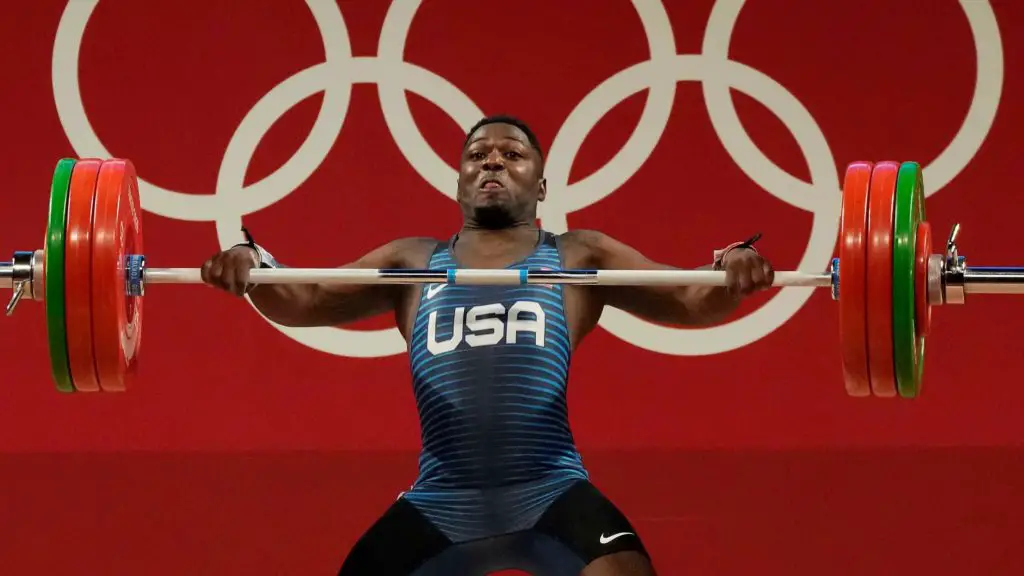
Weightlifting, an Olympic sport celebrated for its rich heritage tracing back to the prowess of ancient Egyptian and Greek civilizations.
This sport isn’t just about hoisting barbells; it’s a refined test of strength, power, and technique, setting it apart from other strength disciplines.
Athletes showcase their skills in the snatch and the clean and jerk—two lifts that define the essence of Olympic weightlifting.
These competitors have a trio of chances to prove their mettle in each lift, aiming to achieve the highest combined total weight in kilograms.
A mainstay since 1896, weightlifting has carved its niche in every Summer Olympic Games from 1920 onwards. The sport is not just a display of brute strength but a ballet of explosive power, requiring lifts to be executed with unparalleled speed and mobility.
Beyond the competitive arena, weightlifting is a transformative activity. It sculpts the body, accelerates fat loss, and builds muscle and strength.
But its benefits extend further, enhancing power output essential for boosting speed and agility, increasing work capacity, and safeguarding against injury through improved flexibility and joint stability.
Weightlifting also bolsters bone density—a boon for women—hones coordination and elevates overall sports performance by replicating key athletic movements. Embrace weightlifting to push your physical and mental boundaries, and discover the Olympian within.
8 Tennis
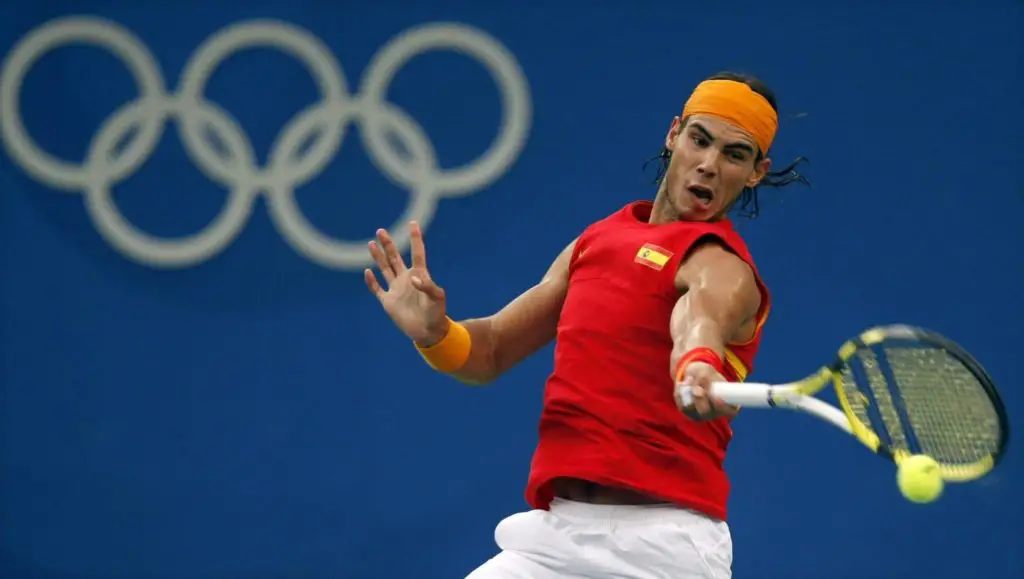
Tennis not only secures a position within the top 10 Olympic sports but has also seen a meteoric rise in popularity, drawing in vast audiences and the crème de la crème of athletes such as Serena Williams, Roger Federer, Rafael Nadal, and Novak Djokovic.
This esteemed racket sport, which can be played both individually or in pairs, boasts a storied tradition originating from 19th-century England and has been a highlight of the Summer Olympics since 1988, winning hearts globally with its thrilling encounters and marquee names.
Among the myriad of sports featured at the Olympics, tennis distinguishes itself through its universal charm and the allure of legendary figures who command attention far and wide.
Its presence in the Olympics elevates the game’s status and allure, making it an unmissable spectacle within the Games.
Tennis blends finesse, strategic prowess, and physical agility, solidifying its place as a beloved sport among both spectators and participants and amplifying the overall dynamism and spirit of competition at the Olympic Games.
7 Soccer

Soccer, renowned globally as Association Football, emerges as a titan among the top ten Olympic spectacles, captivating an audience of approximately 3.5 billion enthusiasts.
This staggering figure not only elevates soccer to the pinnacle of global sports viewership but also underscores its universal appeal across diverse age demographics.
Marking a historic milestone, soccer was the inaugural team sport to grace the Olympic stage, with the women’s variant making its celebrated debut in 1996.
This sport transcends gender, being fervently played in educational institutions, clubs, and on the international stage, epitomized by the feverishly anticipated World Cup—a quadrennial celebration that garners unparalleled global attention.
Within the Olympic realm, soccer serves as a beacon of unity, bridging disparate cultures through shared fervor and communal enjoyment, from professional leagues to the grassroots level.
Unique to Olympic men’s soccer, the inclusion criteria emphasize youth, allowing only a trio of overage players per team, a stipulation that curates a blend of emerging talent and seasoned expertise.
Despite the absence of some football luminaries, soccer’s allure at the Olympics remains undiminished, magnetizing a vast international viewership.
Soccer’s indelible imprint on the Olympic Games epitomizes its enduring legacy and universal appeal, firmly establishing it as a global phenomenon that resonates with billions, further cementing its revered status among the world’s most cherished sporting events.
6 Basketball
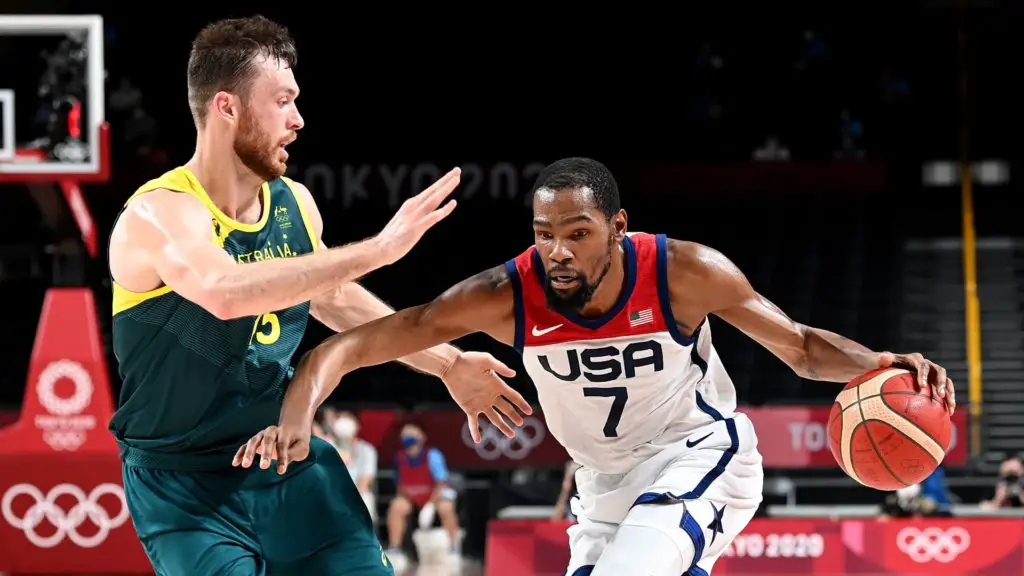
Since its inception in the Olympic Games, Basketball has ascended to the zenith of global sports, captivating millions with its dynamic blend of athleticism, strategy, and unparalleled teamwork.
Making its debut for men in 1936 and welcoming women into the fold by 1976, basketball has not only showcased the prodigious talents of international stars but has also become a beacon of inspiration, particularly to the youth, elevating it to one of the top 5 most revered Olympic sports.
The spectacle of basketball at the Olympics is a testament to its enthralling nature, where teams embark on a quest for Olympic glory, powered by a blend of skill, agility, and an unwavering team spirit.
This sport’s rich Olympic legacy, underscored by American prowess, continues to enchant a global audience, affirming basketball’s status as a sport with a profound and enduring universal appeal.
5 Volleyball
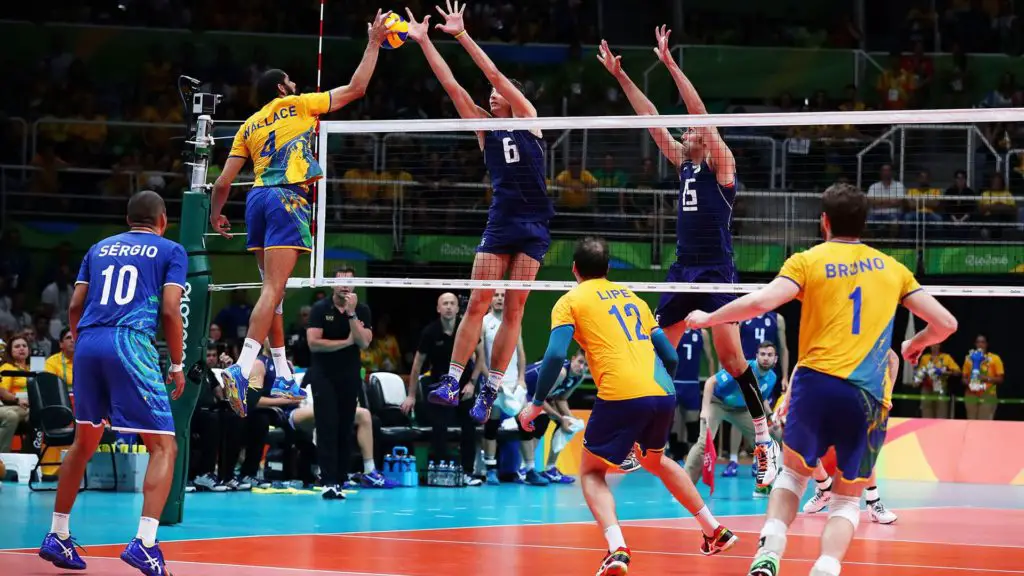
Volleyball’s transformation from a modest game invented in 1895 to an Olympic sensation encapsulates a story of resilience, innovation, and global camaraderie.
Born from the creative mind of William Morgan at a Massachusetts YMCA, volleyball quickly transcended its initial moniker of mignonette, capturing the hearts of players worldwide with its dynamic play and strategic volleys.
Its meteoric rise from a demonstration sport in the 1924 Olympics to a cornerstone of the Olympic Games in 1964 highlights not just the sport’s universal appeal, but also the unyielding spirit of its community.
This journey was marked by challenges, notably the pushback it faced for the 1968 Games, which was met with formidable resistance from its passionate fanbase and players, underscoring the deep connection and influence the sport wields.
As volleyball evolved, so did its Olympic format, introducing a more riveting competition structure that showcased the pinnacle of teamwork and athletic prowess.
The Soviet Union’s dominance in the sport and Brazil’s mastery of beach volleyball underscore the global stage volleyball offers for countries to shine. Karch Kiraly’s unparalleled achievement of three Olympic gold medals further cements the sport’s legacy as a platform for extraordinary talent and dedication.
Beyond the Olympic arenas, volleyball thrives in the heart of academic institutions like Harvard, where intramural leagues have become a beacon of inclusivity, competition, and fun.
These leagues represent more than just a sport; they are a testament to volleyball’s enduring ability to forge lasting bonds, promote fitness, and celebrate collective achievement.
Volleyball is not just a game; it’s a global phenomenon that continues to inspire, unite, and thrill millions, from the sands of the beach volleyball courts to the hardwood floors of the Olympic stage.
4 Water Sports
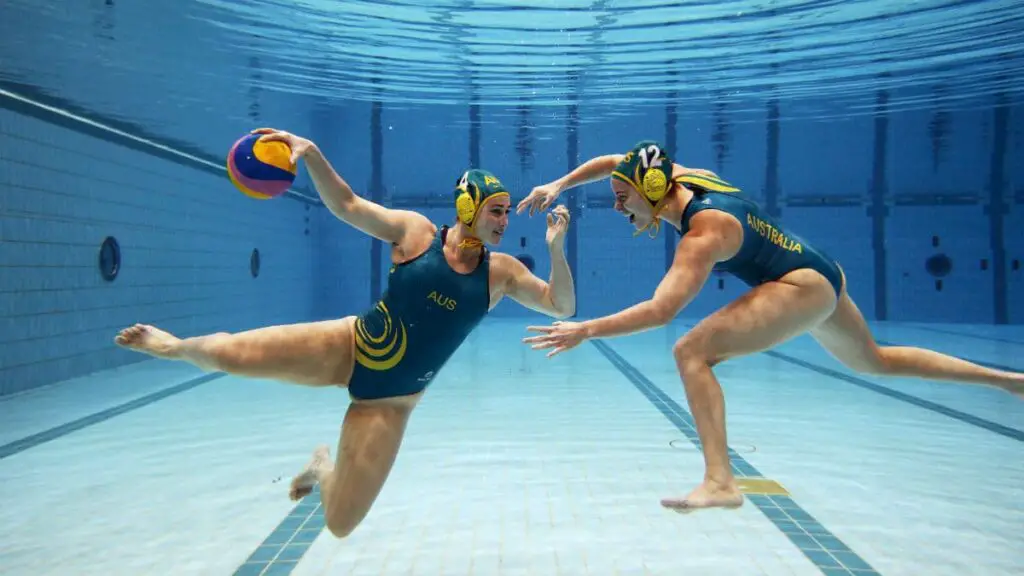
The allure of Water Sports in the Olympics is undeniable, captivating millions with a breathtaking showcase of agility, strategy, and sheer human endeavor.
From the ancient prowess demonstrated in swimming, a sport etched in humanity’s history since the Stone Age, to the thrilling innovation of surfing, recently added to the Tokyo 2020 Olympics, each discipline presents a unique narrative of athletic excellence.
Swimming, governed by the rigorous standards of FINA, continues to be a crowd-pleaser with its diverse competitive events.
Meanwhile, diving, known for its elegant acrobatics since its Olympic debut in 1904, and water polo, a test of endurance and teamwork birthed in the late 19th century, add layers of dynamism to the aquatic sports spectrum.
Rowing and sailing, with their deep historical roots and strategic complexity, alongside the rhythmic grace of artistic swimming and the adrenaline rush of canoe slalom and marathon swimming, enrich the Olympic tradition with unparalleled diversity and excitement.
These water sports not only highlight the peak of human athletic achievement but also foster a global community united by the thrill of competition and the love of the game.
3 Athletics (Track & Field)
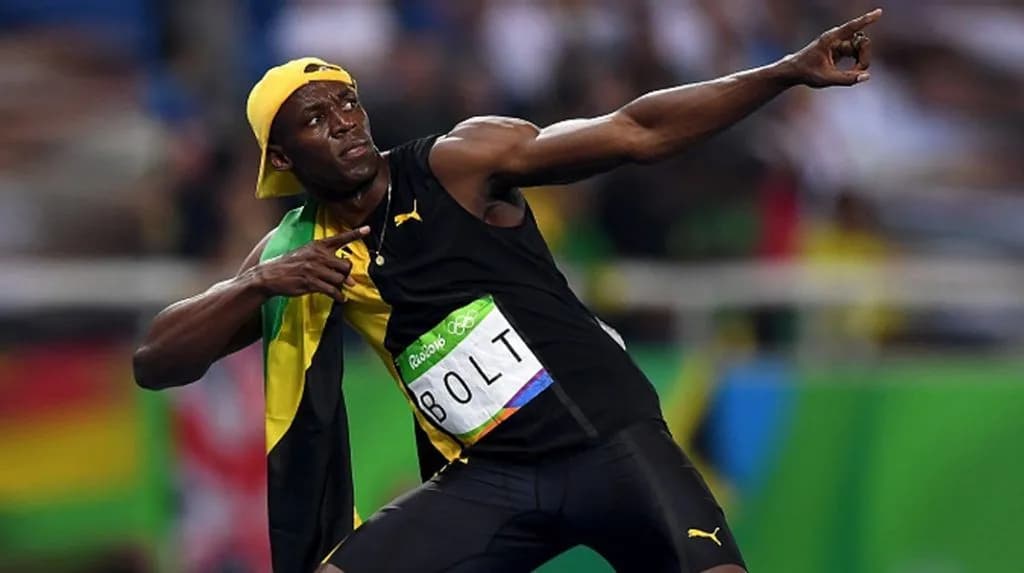
Track and Field, or Athletics, stands as a titan among the top 10 most beloved Olympic sports, boasting an illustrious lineage that traces back to the ancient Greek Olympics.
As a foundational pillar of the modern Olympic spectacle, it offers a broad spectrum of events that span running, jumping, and throwing, representing the largest sport by number of events and competitors.
This global stage brings together the pinnacle of human athleticism and competitive zeal, captivating audiences worldwide.
The Olympics shine a spotlight on marquee Athletics events such as the lightning-fast sprints, endurance-testing marathons, high-flying jumps, and power-driven throws, including the heptathlon and decathlon.
Highlighting incredible feats of physical prowess and unwavering dedication, athletes like Usain Bolt in sprints and Mo Farah in long-distance events have etched their names into Olympic lore.
Track and Field’s magnetic allure extends beyond its historical significance, fueled by the fierce rivalry and variety it offers.
With a wide array of disciplines that test speed, strength, agility, and precision, from relay races to pole vaulting and shot put, it captivates a global fanbase, offering a riveting display of athletic excellence that keeps spectators on the edge of their seats.
2 Swimming
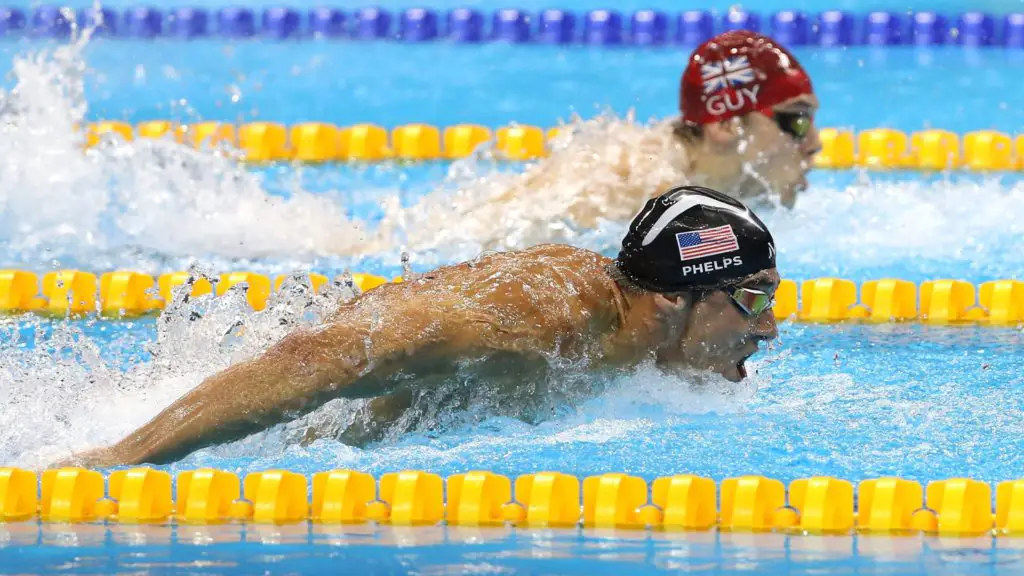
Swimming not only secures its place among the elite Top 10 Most Popular Olympic Sports but does so with unparalleled elegance and a storied legacy that captures the imagination.
Since making a splash at the inaugural modern Summer Olympics in 1896, swimming has seamlessly woven itself into the fabric of the Games, welcoming a staggering 166 nations to compete in London 2012.
This universal appeal is magnified by the awe-inspiring achievements of legends such as Michael Phelps, Mark Spitz, Ian Thorpe, and Katie Ledecky, whose extraordinary feats have left fans worldwide on the edge of their seats.
The sport’s allure is further amplified by its diverse range of events that cater to every taste, from the raw speed of 50m sprints to the endurance test of 1500m races, not to mention the technical prowess required in the individual medley events that challenge athletes to master all four strokes.
This variety ensures that swimming remains fresh, exciting, and accessible to a broad audience.
Adding to its captivating appeal are the unforgettable rivalries and moments that have come to define Olympic swimming, turning the pool into a stage for drama and competition at its finest.
The intense face-offs, such as the memorable “Phelps Face” rivalry, do more than just entertain; they encapsulate the spirit of the Olympics, drawing viewers from every corner of the globe into the heart-pounding excitement of the sport.
1 Gymnastics
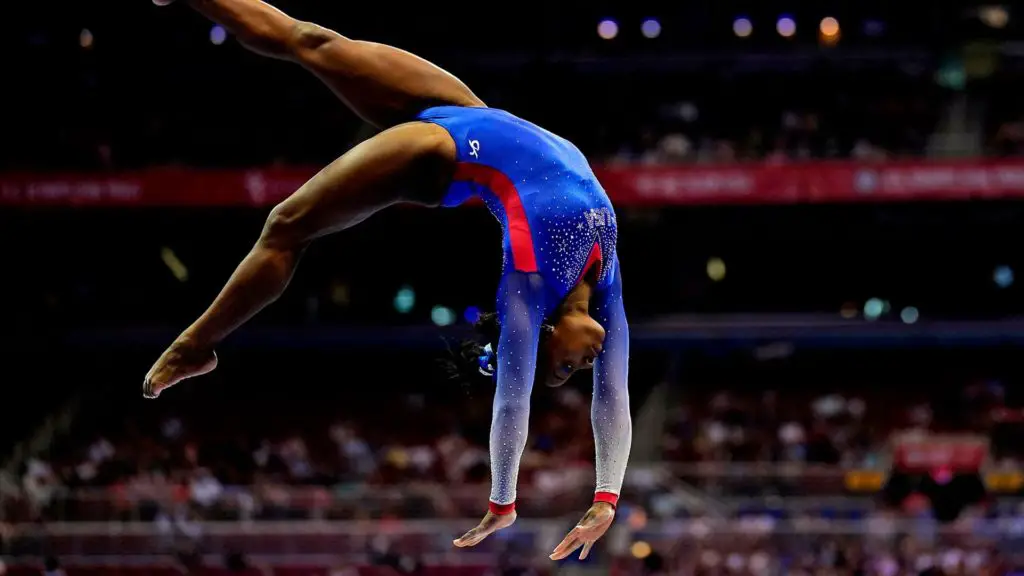
Gymnastics, with its origins steeped in the ancient traditions of Greece, has ascended to the pinnacle of Olympic glory, securing its place among the top ten most beloved sports on the global stage.
This sport, a breathtaking fusion of athleticism and artistry, has captured the hearts of millions worldwide, weaving a rich tapestry of history that reflects the spirit of nationalism—from its pivotal role during the Napoleonic Wars to the era of Soviet supremacy.
Since the Olympic Games revival in 1896, gymnastics has been a cornerstone, enchanting audiences with displays of strength, agility, and grace that are nothing short of mesmerizing.
The magic of gymnastics is not confined to a single discipline but is beautifully manifested across various forms, including artistic gymnastics, rhythmic gymnastics, trampoline, and more, each demanding unparalleled strength, agility, and dedication.
These competitions stand out as the quintessence of the Olympic spectacle, offering a mesmerizing blend of physical prowess, artistic expression, and pinpoint precision.
While gymnastics has navigated through storms of controversy, from abusive coaching practices to doping scandals, its core—representing national pride and the quest for physical ideality—remains unshaken.
Today, gymnastics continues to dazzle and inspire, cementing its status as a symbol of Olympic excellence and a testament to human potential, making it an indispensable jewel in the crown of the Olympic Games. Gymnastics tops the list of top 10 most popular Olympic sports.
Disclosure: Our content is reader-supported. If you click on certain links we may make a commission. Learn More.
Discover more from Sportshubnet
Subscribe to get the latest posts sent to your email.




